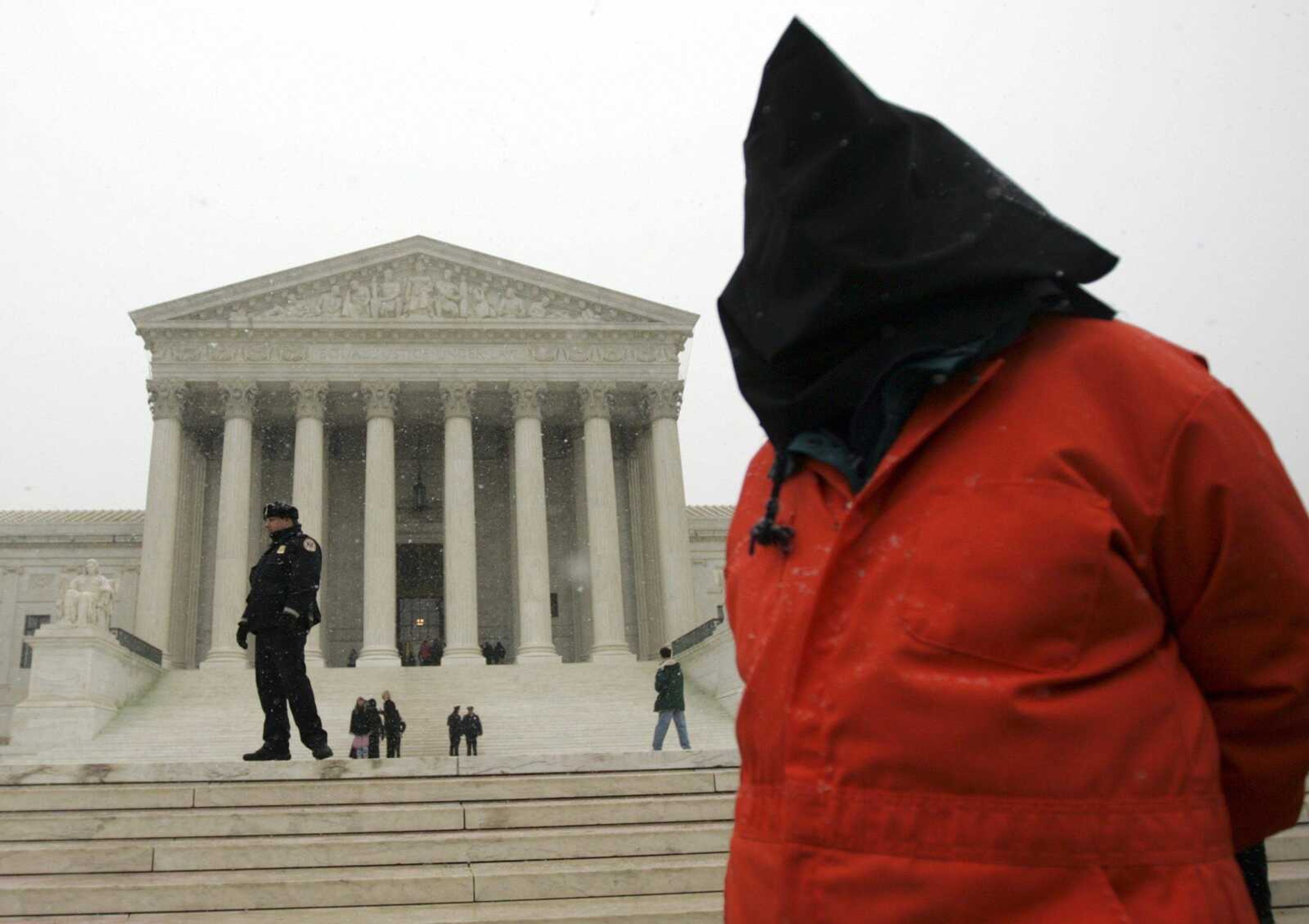WASHINGTON -- The Supreme Court debated the rights of foreign terrorism suspects held at Guantanamo Bay on Wednesday for the third time since 2004, a legal struggle that could still be around when a new president takes office in 13 months.
Most questions from the justices seemed to accept that the 305 men held at the U.S. naval base in Cuba, many for nearly six years, have some rights to challenge their detention.
Instead, the key question that emerged Wednesday was whether the limited court review created by the Bush administration and Congress in response to earlier Supreme Court rulings for the detainees is good enough.
The court's resolution of this matter, expected in a decision in the spring, could determine whether the detainees receive prompt hearings that might result in freedom for some or face many more months, even years, of legal proceedings and imprisonment.
Justice Stephen Breyer tried to capture the inadequacy of the review process when he talked about a detainee who, after six years in jail, may want to argue that the Constitution says he must be charged or released. "I don't see anything," Breyer said, "that permits me to make that argument. So I'm asking you: Where can you make that argument?"
Solicitor General Paul Clement, the Bush administration's top Supreme Court lawyer, replied, "I'm not sure that he could make that argument."
Breyer said: "Exactly."
The administration opened the detention facility at the U.S. naval base at Guantanamo Bay, Cuba, shortly after the Sept. 11 terrorist attacks to hold enemy combatants, people suspected of ties to al-Qaida or the Taliban.
The court has twice ruled that people held there without charges can go into civilian courts to seek their freedom. Each time, the administration and Congress, then controlled by Republicans, has changed the law to try to close the courthouse doors to the detainees.
Two dozen protesters, some in prison-like orange jumpsuits, chanted and waved signs outside the court. "Restore habeas corpus!" they chanted, referring to the right to court review of the legality of detention.
Clement, in his written argument, said foreigners captured and held outside the United States "have no constitutional rights to petition our courts for a writ of habeas corpus."
The government lawyer spent most of his time Wednesday telling the justices that if they determine that he is wrong on that constitutional question, they should not rule on whether procedures in place are adequate.
Instead, he said the court should return the issue to the U.S. Court of Appeals for the District of Columbia Circuit, where the detainees' status as enemy combatants is undergoing a highly restrictive form of review. Compared to protections historically afforded foreigners held by the United States somewhere other than on U.S. soil, the review is a "remarkable, remarkable liberalization," Clement said.
Connect with the Southeast Missourian Newsroom:
For corrections to this story or other insights for the editor, click here. To submit a letter to the editor, click here. To learn about the Southeast Missourian’s AI Policy, click here.







